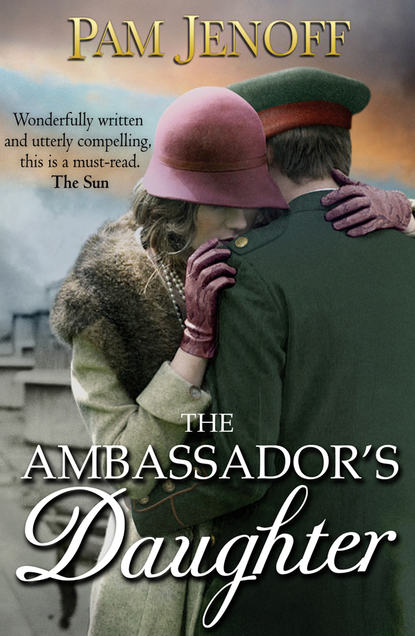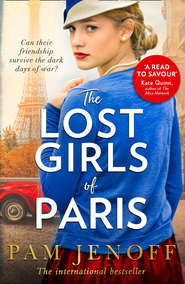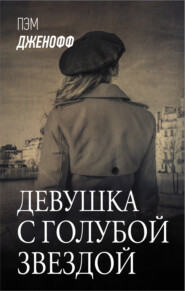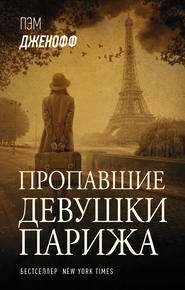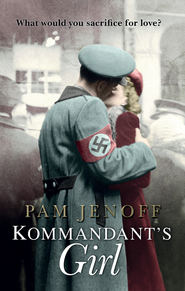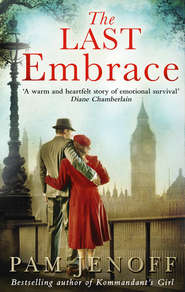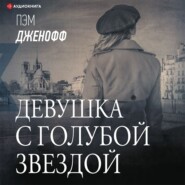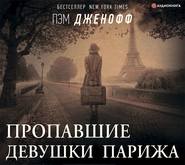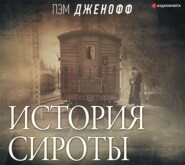По всем вопросам обращайтесь на: info@litportal.ru
(©) 2003-2024.
✖
The Ambassador's Daughter
Настройки чтения
Размер шрифта
Высота строк
Поля
“Pardon,” Monsieur Batteau says a short while later, “but if you’d like to buy anything …” I glance up from the travelogue of Africa I’d been browsing. I’ve been in the shop scarcely thirty minutes and the light outside has not yet begun to fade. “I’m closing early today, on account of the parade.”
“Of course.” How could I have forgotten? President Wilson arrives today. I stand and pass Monsieur Batteau a few coins, then tuck the Goethe tome and the book on botany I’d selected into my satchel. Outside the street is transformed—the queues have dissipated, replaced with soldiers and men in tall hats and women with parasols, all moving in a singular direction. Leaving the bike, I allow myself to be carried by the stream as it feeds into the rue de Rivoli. The wide boulevard, now closed to motorcars, is filled with pedestrians.
The movement of the crowd stops abruptly. A moment later we surge forward again, reaching the massive octagon of the Place de la Concorde, the mottled gray buildings stately and resplendent in the late-afternoon sun. The storied square where Marie Antoinette and Louis XVI were executed is an endless mass of bodies, punctuated by the captured German cannons brought here after the armistice. The statues in the corners, each symbolizing a French town, have been covered in laurels.
The crowd pushes in behind me, onlookers from every side street attempting to pack the already choked space. I am surrounded by a sea of tall men, the damp wool from their coats pressing against my face, making it impossible to breathe. Close spaces have never suited me. Trying not to panic, I squeeze through to one of the cannons. I hitch my skirt and climb onto the wheel, the steel icy against my legs through my stockings. “Pardon,” I say to the startled young man already on top of the gun.
There are flags everywhere, I can see from my new vantage point, banners unfurled from the balconies of the columned Hôtel de Crillon, American flags in the hands of the children. “Wilson the Just!” placards declare. A lane has been formed through the square, roped off with great swaths of sky-blue cloth to keep the crowd back. Airplanes, lower and louder than I’ve ever heard, roar overhead.
A few feet to the right of the cannon, a woman in a blue cape catches my eye. Nearly forty by the looks of her, she stands still in the feverish crowd. She is tall, her posture perfectly erect, with chestnut-brown hair piled upon her head. She is somehow familiar, though from where I cannot say. Abruptly, she turns and begins walking, swimming against the tide, slipping away from the gathering. Who would leave before Wilson’s arrival? Surely there is nowhere else to be in the city now. I wonder fleetingly if she is ill, but her movements are calm and fluid as she disappears into the crowd.
The din grows to a roar. I turn my attention back to the square as a row of mounted soldiers canters into view, wearing the bright helmets of the Garde Republicaine. The horses raise their heads high, snorting great clouds of frost from their flared nostrils. The crowd pushes in, twisting the once-straight lane into a serpentine. I shudder as unseen guns erupt jarringly in the distance. Surely that is not a sound any of us needs to hear anymore.
Behind the horses, a procession of open carriages appears. The first bears a man in a long coat and top hat with a woman beside him. Though it is too far away for me to see, I can tell by the whoops that he is President Wilson. As the carriage draws closer and stops in front of the hotel, I recognize Wilson from the photos. He waves to the crowd as he climbs down. But his bespectacled face is solemn, as if seeing for the first time the hopes of so many that hang on his promises.
A minute later Wilson disappears into the hotel. The show quickly over, the onlookers begin to ebb, bleeding down the dozen or so arteries that lead from the square. I glimpse the woman in the blue cape, several yards away now, still fighting her way through the crowd. Impulsively, I hop down from the cannon, catching the hem of my skirt as I do. I free the material, then push toward her, weaving through narrow gaps, heedless now of the closeness as I follow the flash of blue like a beacon.
As I reach the street, I spy the woman fifty or so meters ahead, turning into the park where I’d been cycling an hour earlier. There is nothing unusual about that. But one would not have left Wilson’s arrival for a stroll and her gait is purposeful, suggesting an errand more interesting than just fresh air. I push forward, following her into the park. A moment later, she turns off the main path into a smaller garden where I’ve not been before.
I pause. A gate, tall and tarnished, marks the entrance, elaborate lions carved into either side standing sentry. Ahead, the path is obscured by winter brush. Turn back, a voice seems to say. But the woman in blue has disappeared at a turn in the bend and I cannot resist following her.
I step through the gate and into the garden. A few meters farther, the path ends at a small, frozen pond, dividing to follow its banks on either side. I scan the deserted park benches, but do not see the woman. From beyond the bend comes the sound of laughter. I follow the path as it curves around the pond and it opens to reveal a wide expanse of frozen water, nestled in a cove of trees. A group of well-dressed young women in their late teens, perhaps a year or two younger than me, skate on the ice, chatting in loud, carefree voices.
Across the pond, something stirs against one of the trees. The woman in blue. Will she join the skaters? Maybe two decades older, she appears an odd fit, but the conference has brought together all sorts of unusual people, blurring the conventions and distinctions that might have separated them back home. The woman hangs in the shadows, like the witch out of a fairy tale, watching the skaters raptly. Her gaze is protective and observant, a scientist studying a subject about which she really cares.
The skaters start for the bank and the woman in blue steps back, disappearing. I consider following her farther, but the sun has dropped low behind the trees, the early winter afternoon fading.
Twenty minutes later, having retrieved my bike, I reach the hotel. Papa chose our lodgings at the tiny Hôtel Relais Saint-Honoré carefully. Just across the river from the foreign ministry, it keeps him close to the conference proceedings while still maintaining a bit of privacy. The lobby, with its cluster of red velvet chairs in the corner, feels more like a parlor.
“Mademoiselle,” the desk clerk calls as I cross the lobby. I turn back reluctantly. He holds out a letter toward me, between his thumb and forefinger, as though the German postmark might somehow be infected. I reach for it, my stomach sinking as I eye the wobbly script.
I start for the elevator once more. As the doors open, I am confronted unexpectedly by Papa and two men with swarthy complexions and dark mustaches. “And if you look at the prewar boundaries …” Papa, speaking in French, stops midsentence as he sees me. “Hello, darling. Gentlemen, may I pre sent my daughter? Margot, these are Signore DiVin-cenzo and Ricci of the Italian delegation.”
“A pleasure,” I say. They nod and stare at me strangely. It is my dress, soiled and torn at the hem from where I caught it on the cannon, as well as my disheveled hair. I may quite possibly smell, too, from my vigorous bike ride through the park.
But Papa does not seem to notice, just smiles a warm mix of affection and pride. “I’ll be up in a moment, my dear.” It is not just that he is an absentminded academic—Papa has always accepted me wholly as I am, with all of my rough spots and imperfections. He is not bothered by my unkempt appearance, any more than I mind his predisposition to forgetting about meals or the days of the week.
The attendant closes the elevator gates and my stomach flutters in the queer way it always does as we ride upward to the third floor. I unlock the door to our suite, which consists of a bedroom each for Papa and me, adjoined by a sitting room. I go to the washroom and run the water in the large, claw-foot tub, then pour in some salts. As the tub fills, I remove my soiled dress and the undergarments that have etched themselves to my body. Crinolines may have gone out of style but corsets, unfortunately, are another matter. I turn off the tap and slip into the deep, warm bath, grateful to be enveloped by the steam.
Thinking of the unopened letter, Stefan’s face appears. It is hard to remember exactly when we became romantically involved. He had always been present—a boy on the neighboring block and in the class a grade above mine across the hallway at school. We had played together often as children and he’d been beside me at my mother’s funeral, taking my hand and helping me slip away from the crowded house after. One autumn morning when I was fifteen and reading on the front step of our home in Berlin, Stefan rode by on his bicycle, slowing but not quite stopping as he passed. This did not strike me as unusual—he had a paper route delivering the Post to the houses on our block that ordered it. Half an hour passed and he circled again. I looked up, my curiosity piqued. Stefan’s house was around the corner on a nicer block than ours, twice as big but with a drooping roof and cracked steps in need of repair. I’d seen him on our street three or more times a day lately, though the paper came only daily.
“Wait,” I called after him, standing up. He stopped abruptly, grabbing the handlebar to stop the bike from lurching sideways. “Did you want something?”
He climbed off the bike and set it down at the curb then walked over to me. There was something different about him. Though his strawberry-blond hair and pale skin were the same, he had started shaving, the peach fuzz that had once adorned his upper lip now a faint stubble. He had shot up in height and stood several inches above me and there was a new thickness to his arms.
“I was wondering,” he said, “if you’d like to go to the movies.”
I averted my eyes, caught off guard. I’d expected an invitation to join the football game the boys played Sundays in the park, though Tante Celia said I was getting too old for such things. But his tone was different now and when I turned back to him, I noticed that perspiration soaked his collar. He was nervous.
“Yes,” I say hurriedly, wanting to ease his discomfort.
“I’ll call for you tonight at seven.” He stepped backward, nearly tripping over his bike before getting on and racing away.
The night at the movies was unremarkable, an American comedy, followed by an ice cream at the Eiscafé. After that day, Stefan became increasingly present, coming by the house after school, joining us for Sunday lunch at Uncle Walter’s villa in Grunewald. One afternoon as we strolled around the lake behind the villa, I looked down at our hands, fingers intertwined, and realized that we were courting. Not that it was so very different from when we had just been friends. Stefan was unobtrusive and left me to my own devices. Being with him was rather like being with myself.
We were at Uncle Walter’s for Sunday lunch when news of the war came. One of his aides rushed into the dining room and whispered in his ear and he broke the usual quiet by turning on the radio that sat on the mantelpiece. The men nodded with approval as Germany’s declaration of war crackled over the airwaves. Our ally Austria’s Archduke Franz Ferdinand had been assassinated, murdered in broad daylight by a heathen Serb. We had to take a stand.
Ten minutes later, I climb from the tub, still thinking of Stefan as I dry and put on a fresh dress. I could have gone back to Berlin after the war, insisted that Papa allow me to be with Stefan as he recovers. But I had not. I swallow against my guilt. He is well cared for by his family. It is me he wants above all else, though, I can tell from his letters, which always speak excitedly of my return. I have sent packages of French jellies and other delicacies, but answering his letters is harder. What can I say to this man I hardly know anymore?
I rummage through my toiletries for some salve to relieve my hands, which have grown dry and chapped from the air here. It is my insistence on taking off my gloves too often, Tante Celia says. The items in my kit are few—some face powder, a single tube of pale pink lipstick for special occasions, a fragrance that Celia had given me for my birthday last year, too flowery for my taste.
By the time I emerge, Papa has returned, shuffling papers at the rolltop desk in the corner that doubles as his study over a glass of Pernod. Dinner, two plates covered by metal domes and a thick loaf of bread wrapped in cloth, sits un-served as is our preference.
“Papa,” I say gently, nudging him from his work. I bring the candlesticks down from the mantelpiece as he pours the wine. “Baruch atah Adonai …”
“Celia is at a reception,” he says without my asking when we’ve finished the blessings. I exhale slightly. I would not have been uncharitable and turned away kin with nowhere to go. But spending each Sabbath together is a tradition that Papa and I have observed wherever we have been in the world, bringing our silver Kiddush cup and candlesticks with us, and we continue it here in Paris. No matter how busy he is, Papa always stops what he is doing so that we can have a meal and talk, just the two of us.
I cut the crusty, still-warm loaf of bread. Living in the hotel, it is easy to forget about the shortages the outside world still endures. I hand Papa a piece and notice then that his face is pale. Though he is immaculately dressed and groomed as always, a trim sliver of silver hair circling his head, there are dark circles around his eyes. “Have you taken your medicine?” I ask gently. He gets so caught up in his work that he can forget to eat or sleep much less to take the pills that the doctor said are important for his heart condition. I’ve been reminding him for as long as I can remember.
Before he can answer, I sneeze once, then again. “It’s the dry air,” I say hastily, reaching for my handkerchief. Papa’s brow wrinkles with consternation, now his turn to worry about me. Spanish flu, like the one that had taken my mother more than a decade ago, has been on the rise since autumn. Though I had also come down with the flu as a child, it had spared me like the angel of death in the Passover story, passing by as if lamb’s blood had been painted on the door. I had labored with a fever for days. Then I’d awakened with a permanent crescent-shaped scar on my neck, a reaction to one of the medicines.
But this new flu strain is even more virulent, having taken twelve lives at Oxford alone before our departure. People talked endlessly about how to prevent it—wash out the nose with warm water and soda, wear garlic around the neck, drink a shot of whiskey before bedtime. Some whispered that the Germans unleashed it as a weapon of war, stopping just short of blaming me and Papa personally. “More likely,” Papa said once, “it came across the Atlantic with the soldiers.” In London, people had all but stopped going out. But here the parties continue on gaily, as if germs were some invention of the science fiction writers.
I sample a spoonful of the rich coq au vin. “I’m fine, really. Tell me about your day.”
As we eat, Papa describes his meeting with the men from the Italian delegation, who are seeking his support for an independent Macedonia. “And then there are the West African colonies,” he says, jumping topics as always with mercurial speed. “The French are going to put up a fight on granting independence. They want mandates instead.”
“So it is only to be self-determination for some.”
“Liebchen, we must be practical. One cannot change the entire world in just a few months.”
Then what is the point of the conference? I wonder. “We have to work within the system,” he adds, as if responding to my unspoken question. “Though I know you do not agree. Enough about my work,” he says, as I clear the plates and set out coffee and apple cake. “How are you, my dear?”
“Fine. A bit restless.”
“Oh? I thought you and Celia might enjoy some of the museums….” His voice trails off and he winces at the gulf between me and mother’s sister, a woman he dearly wishes I would accept. “Perhaps if you had a brother or sister,” he frets, as he has so many times over the years. Small families like ours are the exception rather than the rule but, for some reason not quite clear to me, siblings had not been possible.
I kiss his cheek. “I would not have cared to share you,” I say, trying to assuage his guilt. It is the truth. The two of us have always been enough. I see then our Sabbath meals as a tableau, a scene that has played itself out in various cities over the years. “And I’m fine, really. The parties are all well and good, but the women are just silly.” I stop, hearing myself complaining again.
“Would you be happier outside the city?” Papa asks.
I contemplate the question. I have always felt freest when close to nature, like on the hiking trips we took when I was a child. Papa, despite being bookish, had an amazing capacity for the outdoors, an ability to navigate the densest forest without a compass, to find fresh water and sense the weather that was coming. We would climb high with a day’s food in our packs and stay in the cabins that populated the high hills, reaching the next before sundown.
But Paris, while cramped, has a certain energy. And I don’t want to be exiled to some boring suburb with Tante Celia. “I don’t know. I don’t think so, anyway.”
It isn’t the city itself that I dislike, I decide as we eat dessert. I came here every spring as a child, shopping the fine boutiques of Faubourg Saint-Honoré with my mother until Papa joined us at the end of the day for cakes at one of the patisseries. I’d even dreamed of one day studying at the Sorbonne.
No, it’s Paris now that I hate. On the eve of the conference, the city is bursting at the seams with journalists and delegates from every conceivable cause and country. Hotels empty since before the war have been aired out, their rooms hastily refreshed to accommodate everyone who has come to the show. I don’t mind those who have cause to be here, the stuffy clusters of suited men who will decide the future of the world, the scrappy delegates from countries seeking to be born. But the hangers-on, the socialites and doyennes that have come to provide the parties and other window dressing, having stifled Paris to the choking point.





